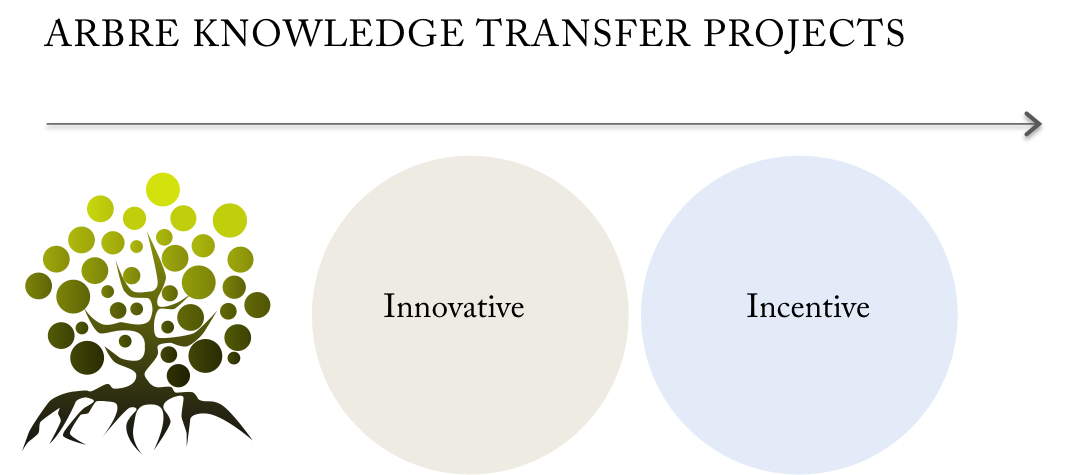Contexte —
Notre contexte économique et social est marqué par une perte tendancielle des emplois industriels, ce qui résulte de la délocalisation des moyens de production vers les pays à plus faibles coûts de main d’œuvre. Le maintien durable de notre niveau de vie implique la mise en œuvre d’une politique ambitieuse d’innovation et de valorisation des travaux de recherche. Cela passe par une meilleure articulation entre notre première mission, la recherche pour la production de connaissances scientifiques, et nos autres missions dont la formation, l’expertise, l’innovation et la valorisation.
La valorisation des travaux de recherches doit conduire à un impact économique et déboucher directement ou indirectement sur des produits et des nouveaux procédés utilisables par les partenaires des travaux réalisés qu’ils soient industriels ou bien représentants de la puissance publique impliqués dans la valorisation de nos ressources naturelles.
Il faut donc mieux appréhender les besoins présents et futurs de notre écosystème industriel, la filière bois, en concevant tout ou partie de nos projets de recherche de manière à les positionner explicitement dans une démarche de valorisation.
Stratégie —
Le Labex ARBRE a donc explicitement prévu de conduire des actions de valorisation en suscitant une démarche de co-construction de projets éligibles aux financements du Labex. Cela se traduit par (i) l’implication dans ARBRE des acteurs de la R&D de la filière forêt-bois publique et privée (ONF, CNPF, CRIT Bois, Pôle Fibres) (ii) par l’engagement de produire des outils d’aide à la gestion forestière, de nouveaux procédés et produits bio-sourcés y compris des brevets (iii) par une politique active d’incitation à la valorisation au travers de l’appel d’offre à projets annuel du Labex.
L’analyse des projets soutenus en 2012 (4 projets) ,2013 (3 projets) et 2014 (6 projets) montre qu’ils représentent 27% des crédits engagés, qu’ils couvrent bien les domaines de valorisation ciblés mais que la démarche de co-construction avec les utilisateurs peut être améliorée.
Pour progresser vers cet objectif de co-construction et donc d’implication plus forte des partenaires de R&D, le comité exécutif a consulté les acteurs du Labex impliqués dans la valorisation et fait évoluer les termes de l’appel à projet 2015. Les projets de valorisation sont à présent éligibles au financement de projets interdisciplinaires, la catégorie la mieux dotée




